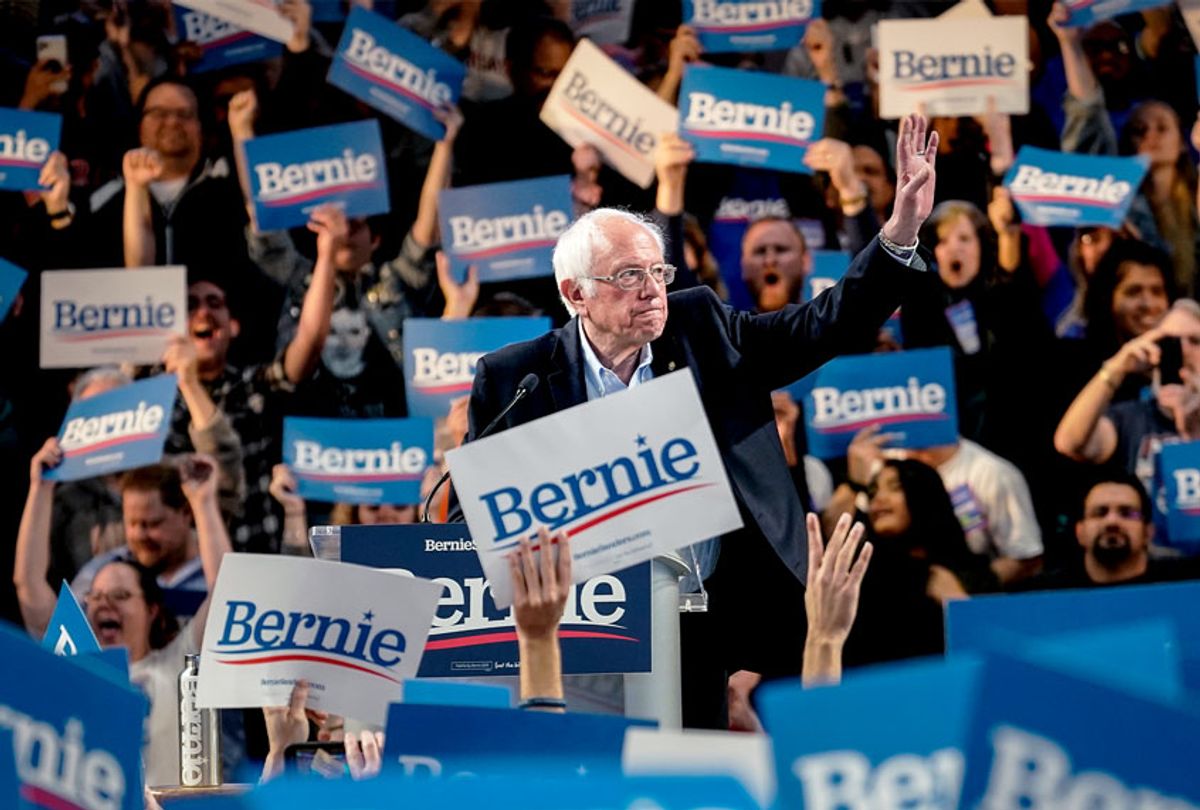Politics is ultimately about life and death, as the current pandemic horrors make clear. Policies that can seem abstract not only routinely harm quality of life — they also kill.
Both of Bernie Sanders' campaigns for president have brought a principled seriousness to the national discourse that no other candidate has come near matching. Now we seem to be entering new terrain. Or are we?
You might not like "war" metaphors — but a vicious reality is that various types of warfare are constantly happening against billions of people on this planet. Humanity is under siege from structured injustice due to anti-democratic power.
We don't have a choice of whether or not we're in a class war. It's going on perpetually — waged with enormous financial, political and media firepower. The firepower of class warfare against Bernie Sanders has been ferocious and unrelenting. The Bernie campaign is dissipating, but class war is sure to remain unrelenting.
Our choices revolve around whether and how to fight back against the centralized wealth and huge corporate interests waging that endless war. Now, as the era after the Bernie 2020 campaign gets underway, I'd like to tell you a little about one of the countless inspiring activists I've met — and why his outlook is so connected to the moment we're in now.
Fifty years ago, Fred Branfman saw the human consequences of war in Laos, an airborne genocide that took place courtesy of U.S. taxpayers and the Orwellian-named Defense Department. Fred was a humanitarian aid volunteer in Laos when he discovered that his own country was taking the lives of peasants there by the thousands.
Fred assembled "Voices from the Plain of Jars." Published in 1972, with the subtitle "Life Under an Air War," the book included essays by Laotian people living under long-term U.S. bombardment as well as drawings by children who depicted the horrors all around them. As one bookseller put it, "This is the story of the first society to be totally destroyed by aircraft."
In 2006, when I talked with Fred, he said: "At the age of 27, a moral abyss suddenly opened before me. I was shocked to the core of my being as I found myself interviewing Laotian peasants, among the most decent, human and kind people on Earth, who described living underground for years on end, while they saw countless fellow villagers and family members burned alive by napalm, suffocated by 500-pound bombs, and shredded by antipersonnel bombs dropped by my country, the United States."
Fred moved to Washington, where he worked with antiwar groups to lobby Congress and protest the inflicting of mass carnage on Indochina. He saw the urgent need to work inside and outside the political system to change policies and save lives.
More than three decades after his experiences in Laos, Fred wrote about "the effect on the biosphere of the interaction between global warming, biodiversity loss, water aquifer depletion, chemical contamination, and a wide variety of other new threats to the biospheric systems upon which human life depends." He was far from optimistic. And that's where, in April 2020, Fred has much to convey to us with a spirit that remains powerful several years after his death.
Many people who pay attention to national and global realities are in despair, and the loss of the Bernie campaign now adds to the weight of pessimism. Fred would have understood. Looking toward the future, he said, "I find it hard to have much 'hope' that the species will better itself in coming decades."
But, Fred went on, "I have also reached a point in my self-inquiries where I came to dislike the whole notion of 'hope.' If I need to have 'hope' to motivate me, what will I do when I see no rational reason for hope? If I can be 'hopeful,' then I can also be 'hopeless,' and I do not like feeling hopeless."
He added: "When I looked more deeply at my own life, I noticed that my life was not now and never had been built around 'hope.' Laos was an example. I went there, I learned to love the peasants, the bombing shocked my psyche and soul to the core, and I responded — not because I was hopeful or hopeless, but because I was alive."
And human.
That should be reason enough for solidarity and determination. We will often lose. We will not give up. We must not give up.



Shares